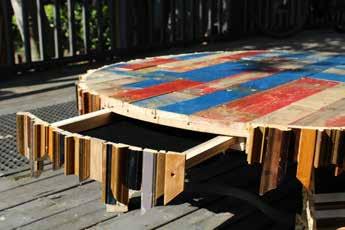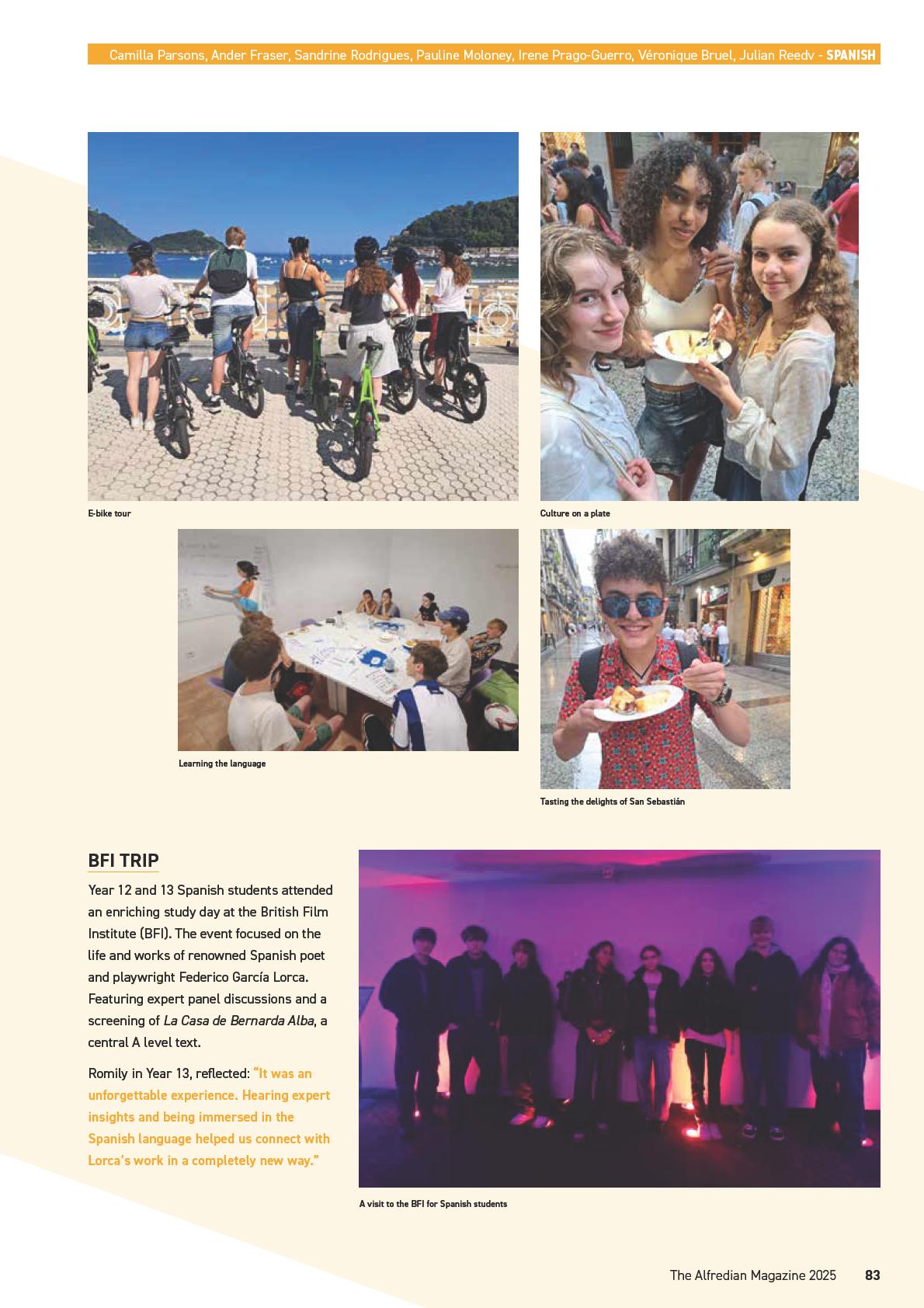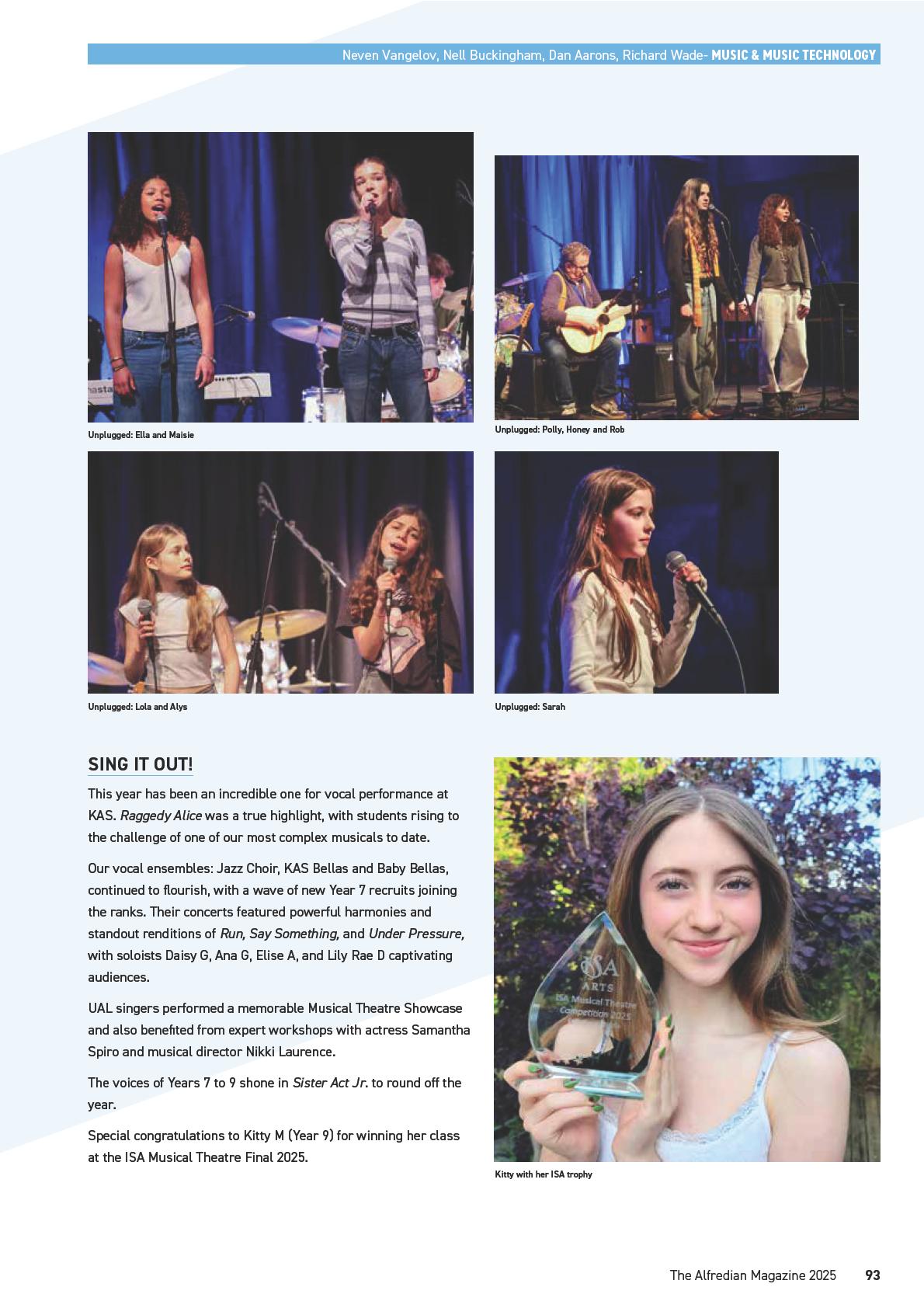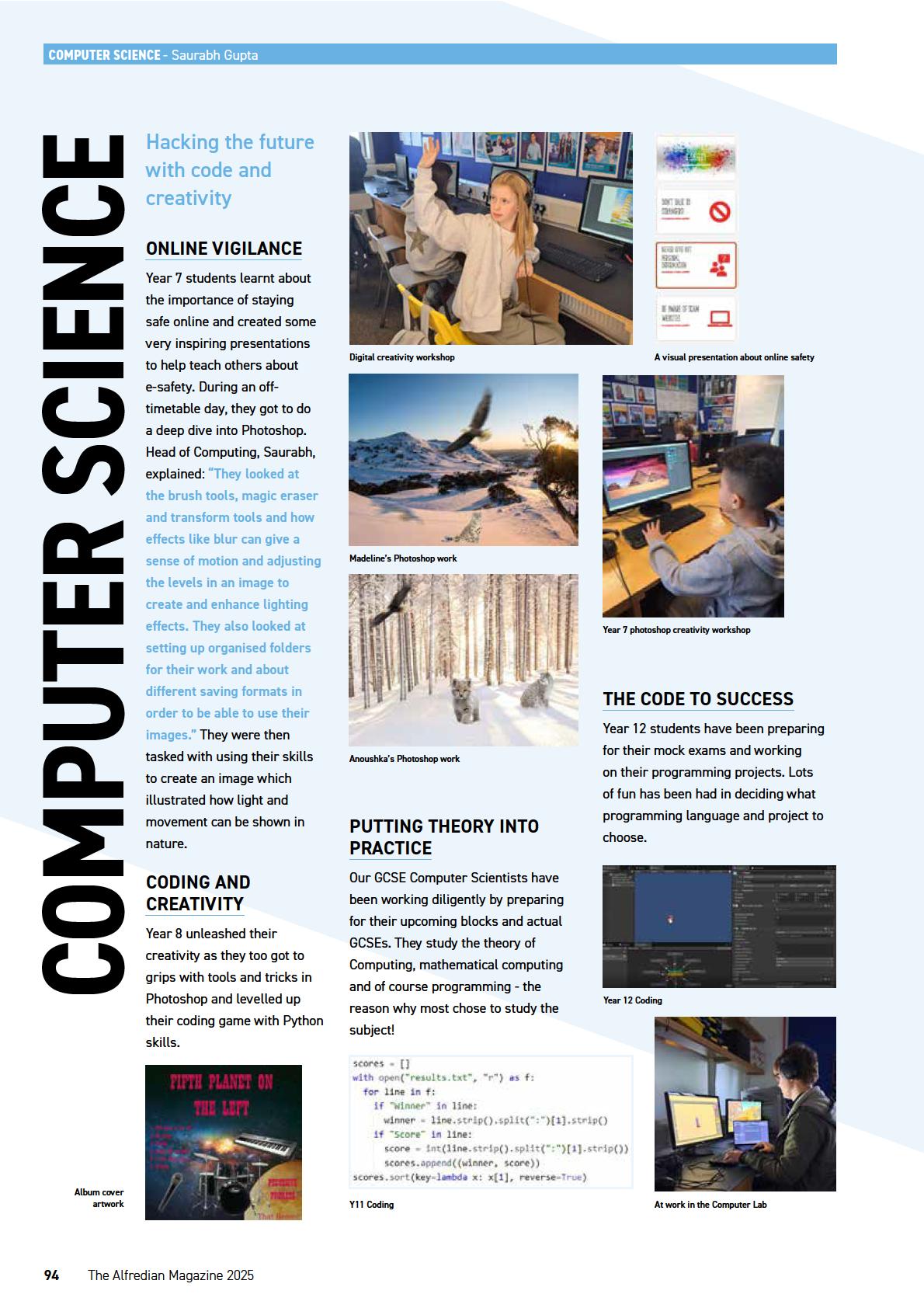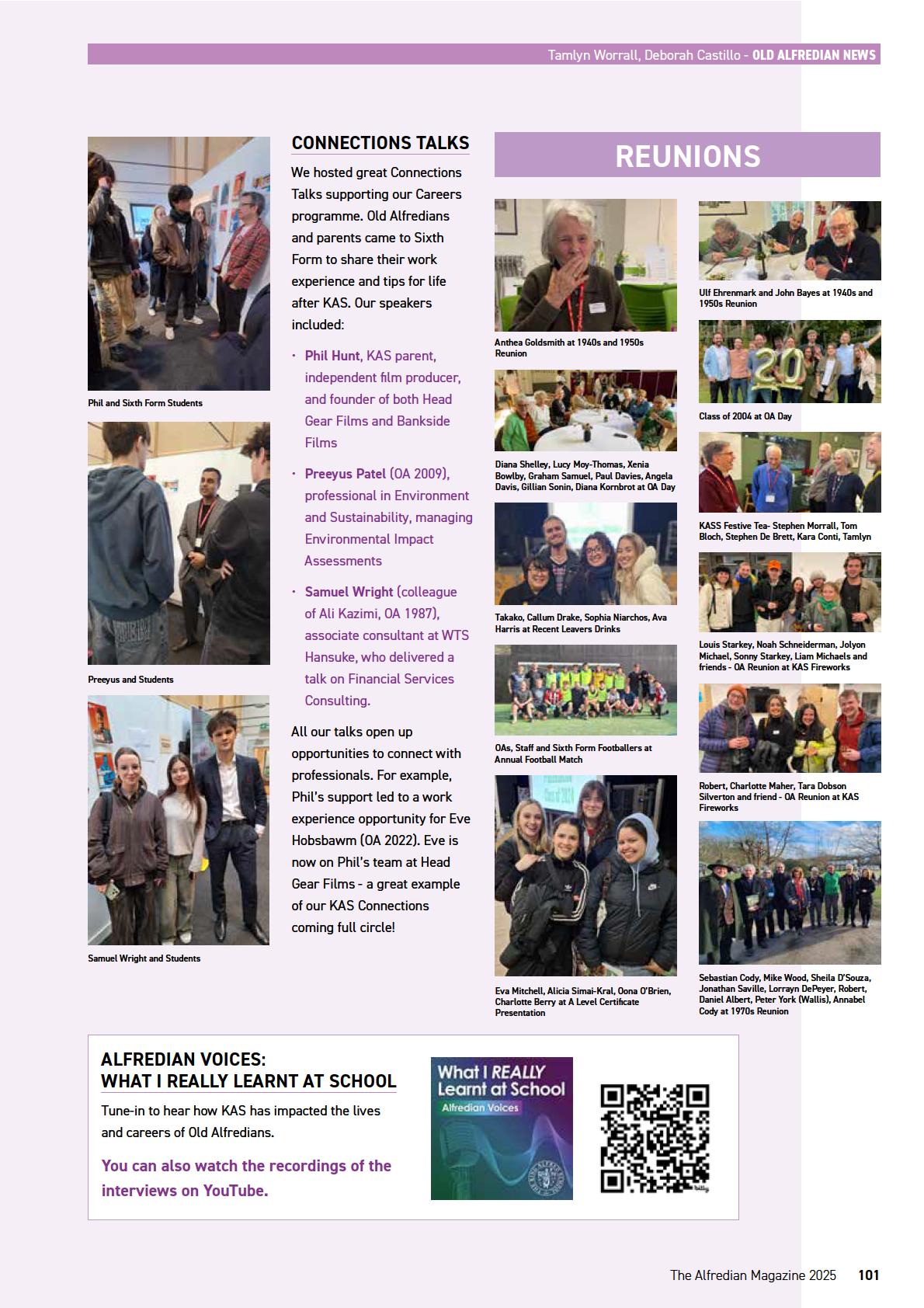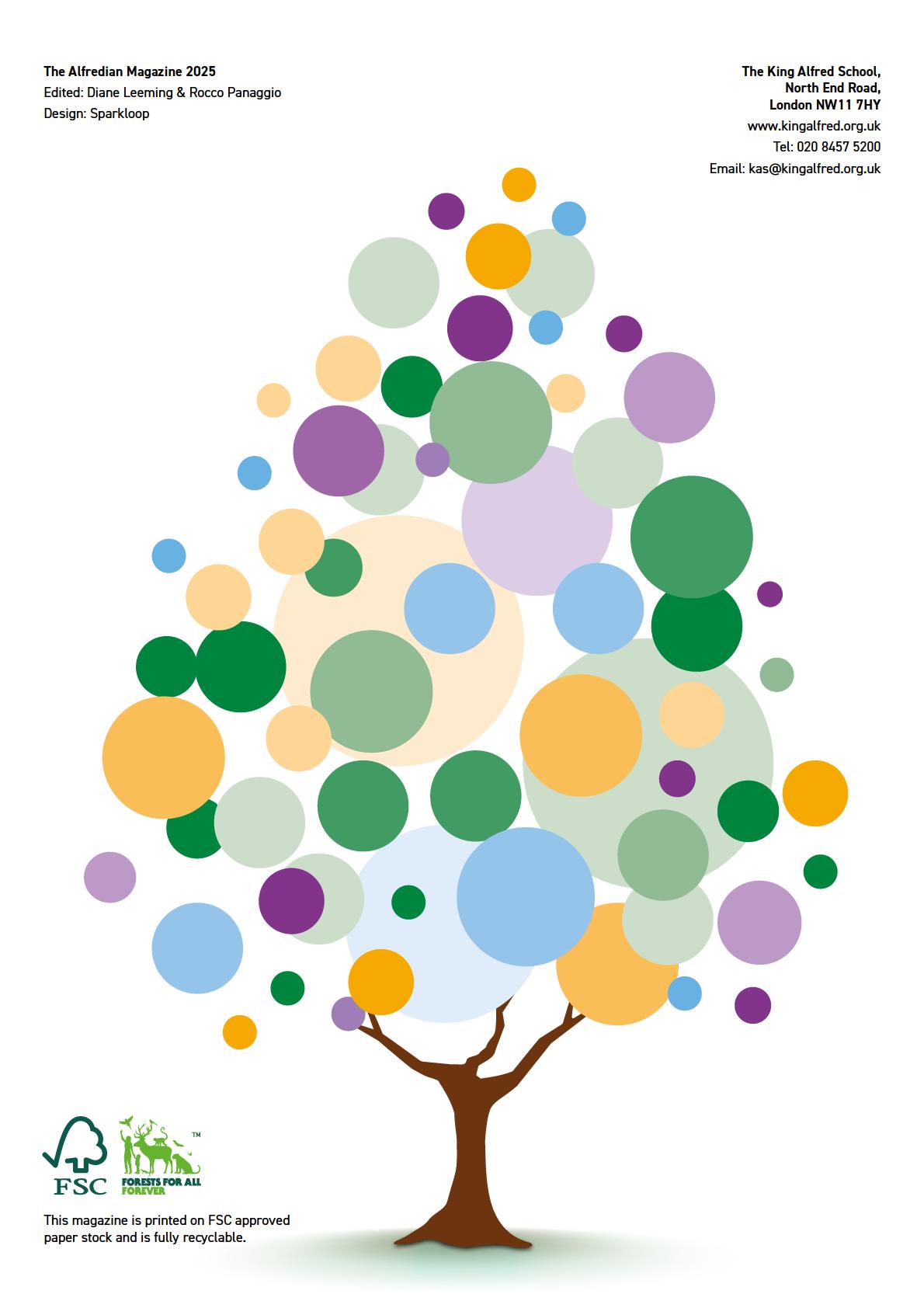
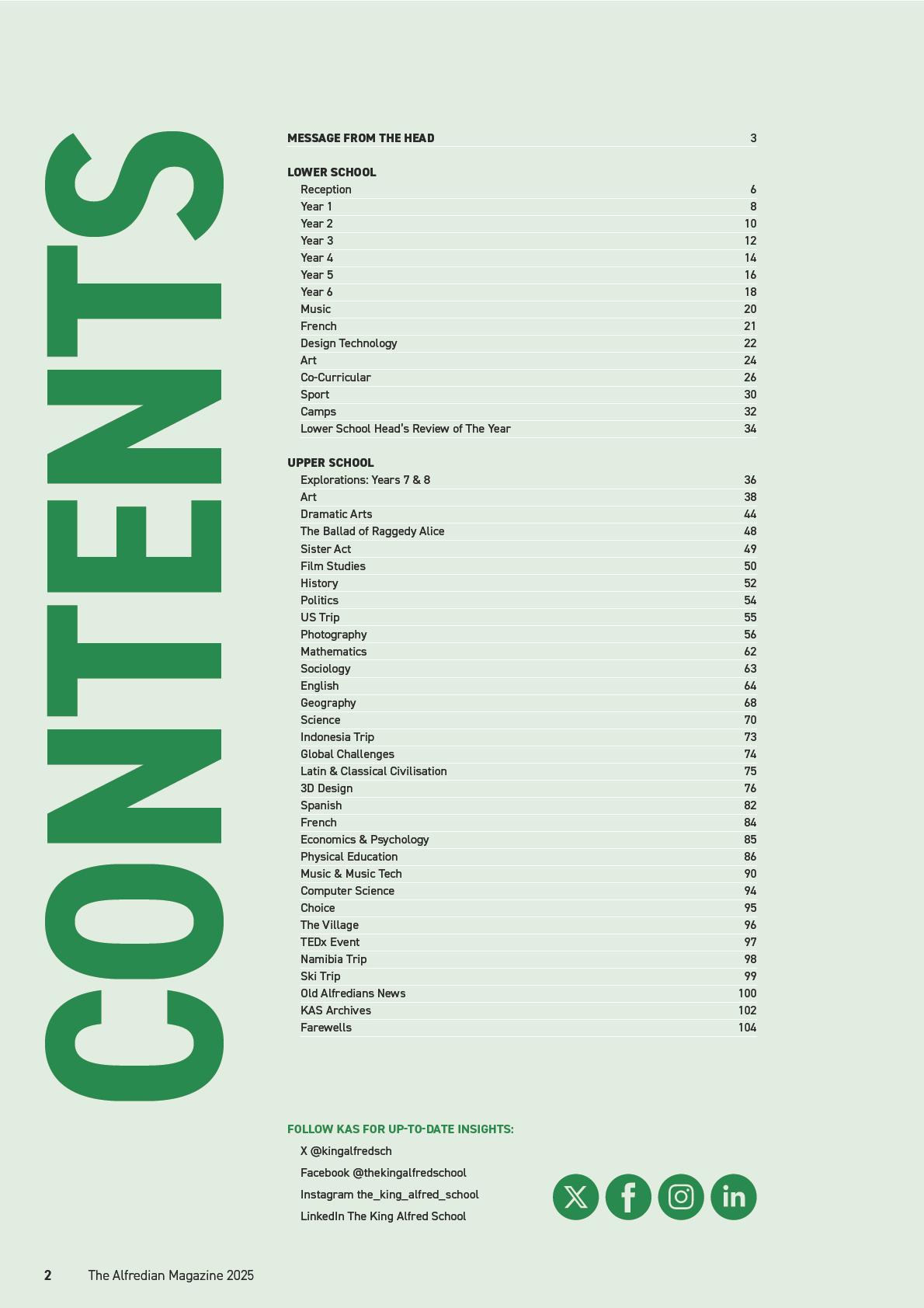



It is hard to believe that it is five years since the first Covid lockdown. Those times and the period since have been filled with dramatic change, and we are only now beginning to understand its impact on ourselves and society.
Whilst Black Lives Matter had been around since 2013, the issue of race burst into all aspects of society in the summer of 2020. It was quickly clear that the death of George Floyd and its aftermath was something which was going to lead to a profound shift. There was a new language to learn, policies to write, books to read, behaviours to change, curriculums to write, data to analyse, groups to engage with. Perhaps, most importantly, there was significant individual work – questioning inherited beliefs and assumptions and being prepared to embrace change.
Alongside this, the Climate Crisis accelerated.
A 2021 study found that 60% of people aged 16 to 25 were very worried about the climate and nearly half said the anxiety affected their daily functioning. How we respond is arguably the great existential issue of our times.
And then there is the complex role that Technology plays in all our lives. How do we deal with ubiquitous social media, especially accessed on smartphones, which all too quickly turns toxic and hurtful. Can we wean ourselves away from the ever-pinging notifications of the groups to which we all belong, and the way they amplify the more extreme views, often fuelling self-righteous outrage, and squeezing the room for balance and perspective. And how do we adapt to the rapid growth of AI - Chat GTP is in fact only 2 years old - how will it impact on the imperfect and messy, beautiful and soaring human dimensions within all of us?
Conflicts throughout the world have also hit hard. Although many thousands of miles away, they have directly impacted our community - through our hosting of refugees, through antisemitism and islamophobia, and through the emotional impact on families with connection to those directly affected. Social media has once again has played its part, polarising views, fermenting echo chambers, making it harder to listen to others and grapple with complexity.

If that is a lot for 5 years, then alongside we have seen an ongoing rise in the needs of children and young people.
As Jonathan Haidt has shown in his book The Anxious Generation,, the number of mental health challenges faced by children and young people has been building for some time. We have also seen a rapid increase in referrals and diagnoses for neurodiversity. These can take many forms – ADHD and Autism being the most visible. But these are essentially umbrella terms, under which there are many variations and nuances – no two neurodiverse people are the same. Of particular note is the greater awareness of these conditions within girls, who often learn the skill of masking at an early age.
The third big change has been the shifting relationships between families and the school.
One interesting dynamic has been the growth in working from home - a fundamental shift in our previous model of how work, life and society functions. There have been a couple of immediate visible impacts. Absence from schools on Mondays and Fridays across the country, for example, has risen significantly. Teacher recruitment and retention struggles have intensified - like other roles where you have to be present in the workplace, teaching has gone from being one of the most family friendly professions to one of the least.
Alongside this, over the past 5 years we have seen a very significant increase in financial pressures. This is a combination of inflation, which peaked at 11% in 2022, and the recent introduction of VAT by the Labour Government. These higher costs inevitably increase parental
expectations which can be complex to manage alongside the rising needs already mentioned.
All schools rely on mutual understanding of expectations between them and their families - an unwritten ‘social contract’ alongside the formally signed one. As the 2023 Chief Inspector of Ofsted report noted, this social contract has become fractured since the pandemic. Parents across the country are less inclined to accept the authority of a school, less inclined to follow rules on matters such as attendance, less inclined to adhere to institutional policies.
So, with these three powerful developments - intense change on the global front, rising needs of young people, and added pressure on the social contract between families and school, how should we at KAS respond?
There is a useful paradigm in a book I read recently – Centennials by Professor Alex Hill. Given that many modern firms have a lifespan of a mere 15 years, he analyses 12 organisations that have thrived for over 100 years, such as ourselves.
At the heart of his analysis is the idea of ‘stable core, disruptive edge’. His image is the atom - think of the stable nucleus in the middle, and energetic particles rotating around it.
He would argue that our first response should be to double down on our core - staying true to our purpose, our ethos and our values.
• We are resolutely and proudly a human place
• Rather than short-term transactions, we believe in longdeveloped relationships
• Resting on strong academic foundations, we believe in holistic education that nurtures all parts of a child or young person
We value every individual, not ranking or ordering them by societally determined norms, but supporting everyone to fulfil their own potential, whatever that may be
We understand that young people grow and develop. They will get things wrong; they will make mistakes. These are part and parcel of, and indeed probably necessary, for growing up and we will support them through that process
• We are guided by Carl Rogers’ notion of unconditional positive regard. We see the drivers for good in everyone - all have something special and unique to offer, and it is our role to provide the space where that can be nurtured and thrive.
If the stable core is those beliefs, then the disruptive edge part is how we make that happen. That will of course, look different to the 1920s, the 1950s, the 1980s.
Firstly, we need to continue to develop our educational provision.
That includes the content of what we do, but also the quality. How do we ensure that the growing individual needs of all our young people are consistently met?
Secondly, we need to use data intelligently. We have become much more data-rich in recent years - whether on student progress, the achievements of different groups, finances, admissions, our sustainability. This has been significant, but we still have further to travel. We must avoid drawing simplistic conclusions from the numbers, but use them to support honest questioning, evaluation and reflection.
And thirdly, we need to apply the disruptive edge to leadership. What kind of leadership is required for the world as it is now?
As leaders, we too need a stable core and a disruptive edge, able to stay true to who we are whilst agile and creative, open and responsive. That is one of the reasons why I am so appreciative of the work that has been done to learn from others through our growing partnerships and networks. And it is no coincidence that this model of stable core, disruptive edge underpins our five-year plan which will take us to the end of this decade.
During the first lockdown I made a Spotify playlist. It starts with Virtual Insanity, goes on to The world turned upside down, and concludes with Under pressure. A few months later, on the suggestion of my wife, I cautiously added Here comes the Sun.
When I look back over the last five years it is undeniable that the pandemic and its aftermath presented real challenge for us allpersonally, professionally and institutionally. Yet, we have come through this with outstanding value-added exam results, healthy student numbers, genuine educational innovations, being a force of progressive development within the wider system as whole and increasingly regarded as one of the leading holistic schools in this country and beyond. Perhaps, it is because of the challenge that we have developed?
That experience gives me optimism as we navigate our next chapter. What we have at KAS is very precious. By staying true to our values, and by being adaptable, we can continue to successfully champion our philosophy of education and life, which is so close to all of our hearts.


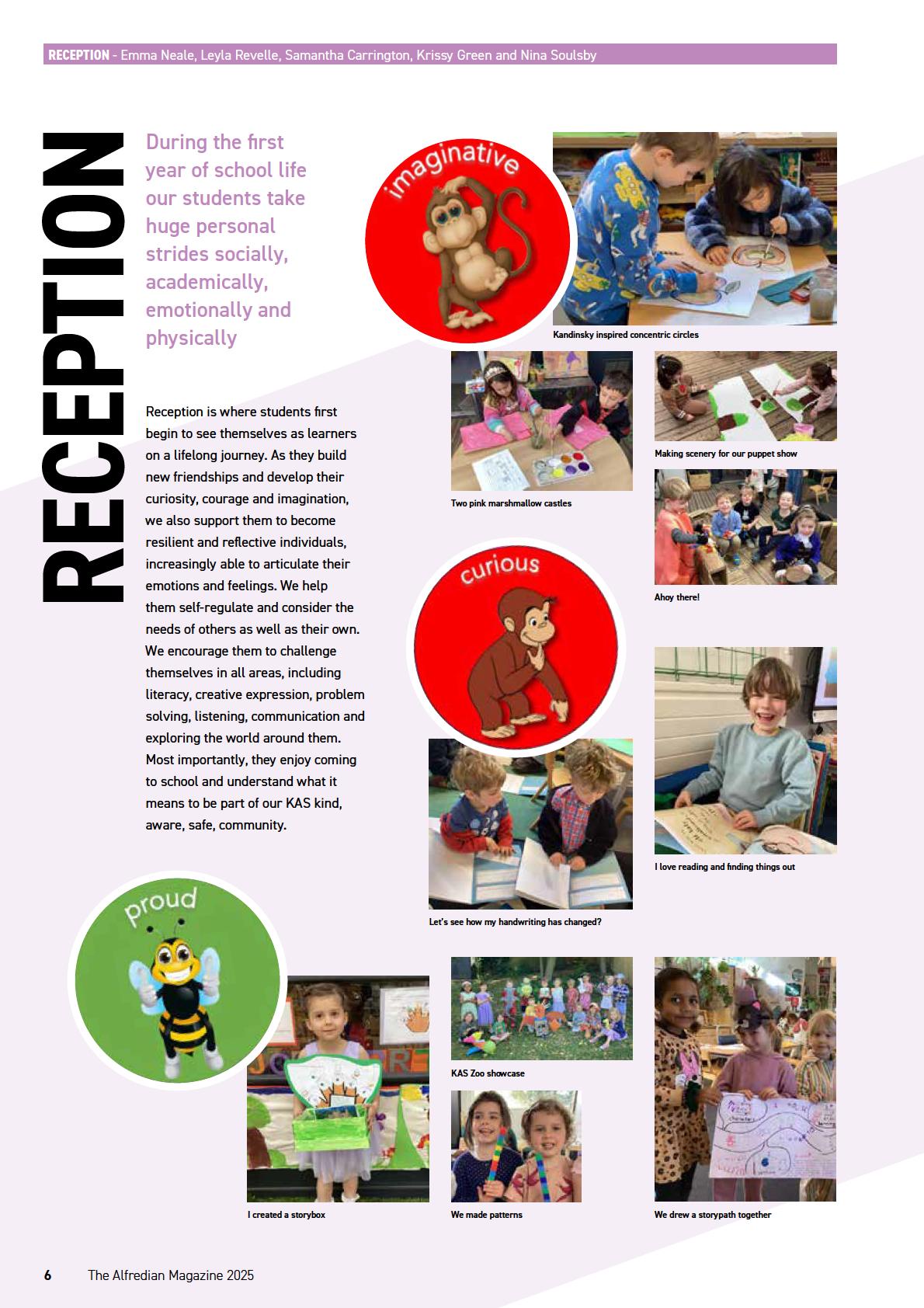




















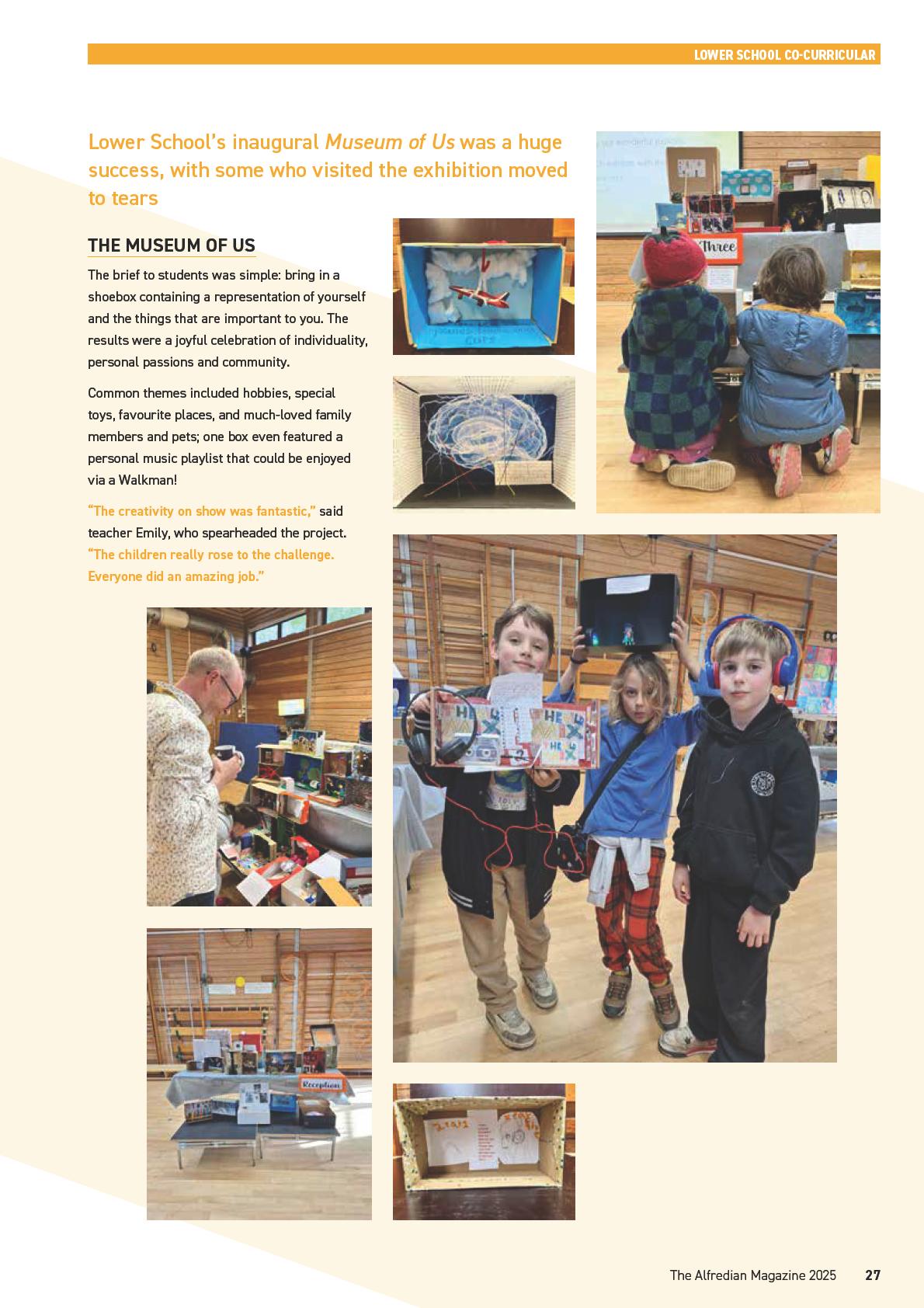



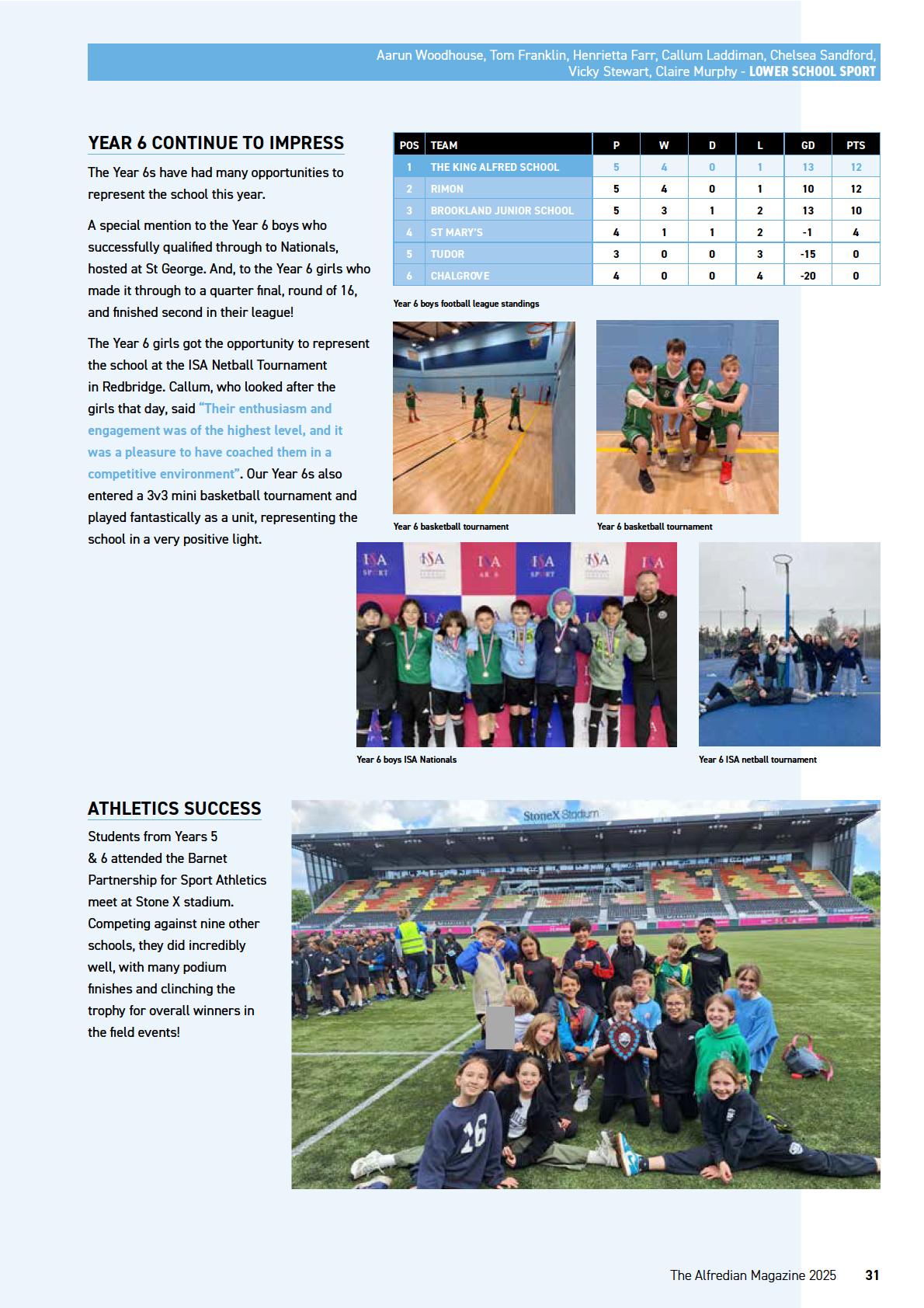





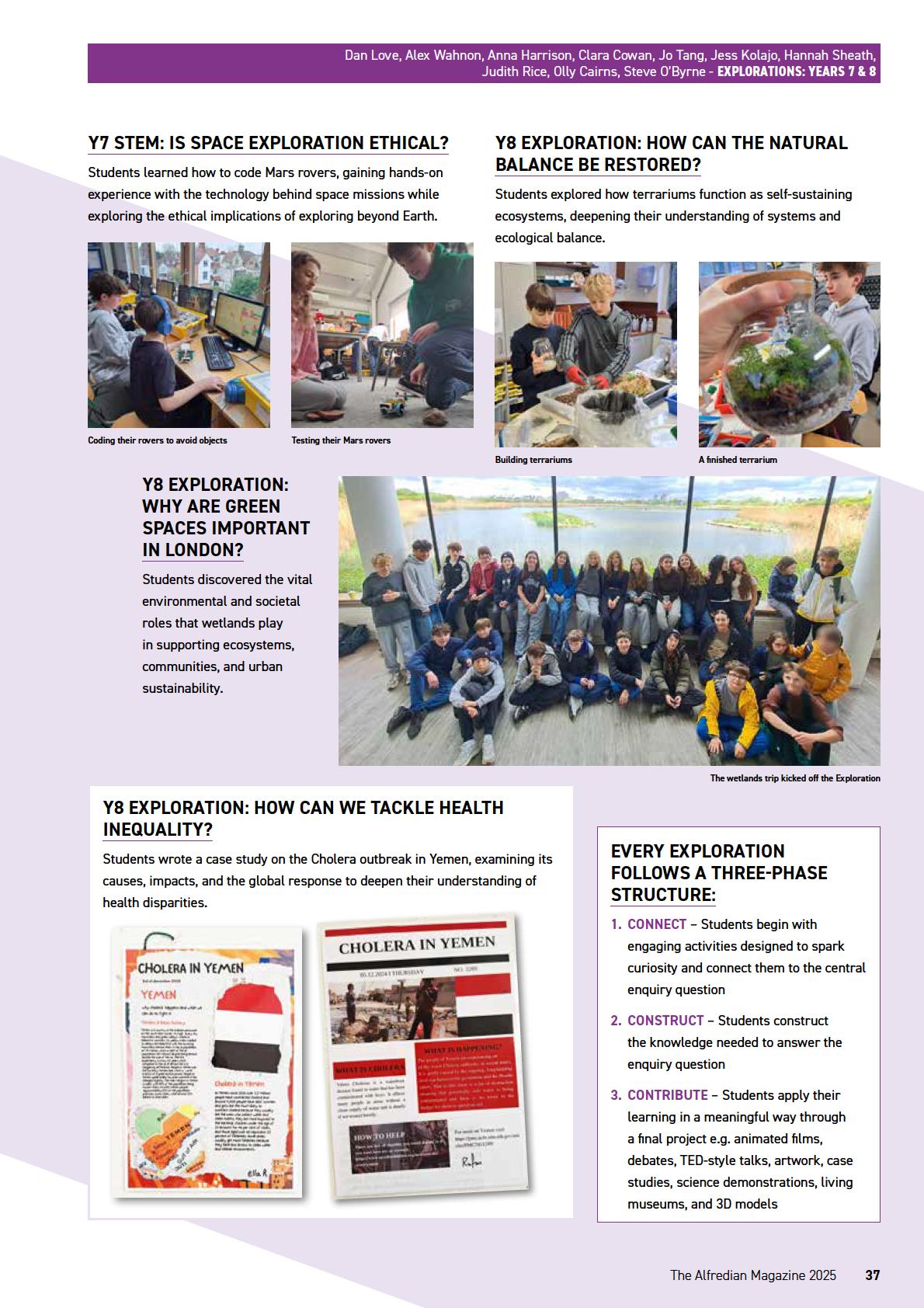

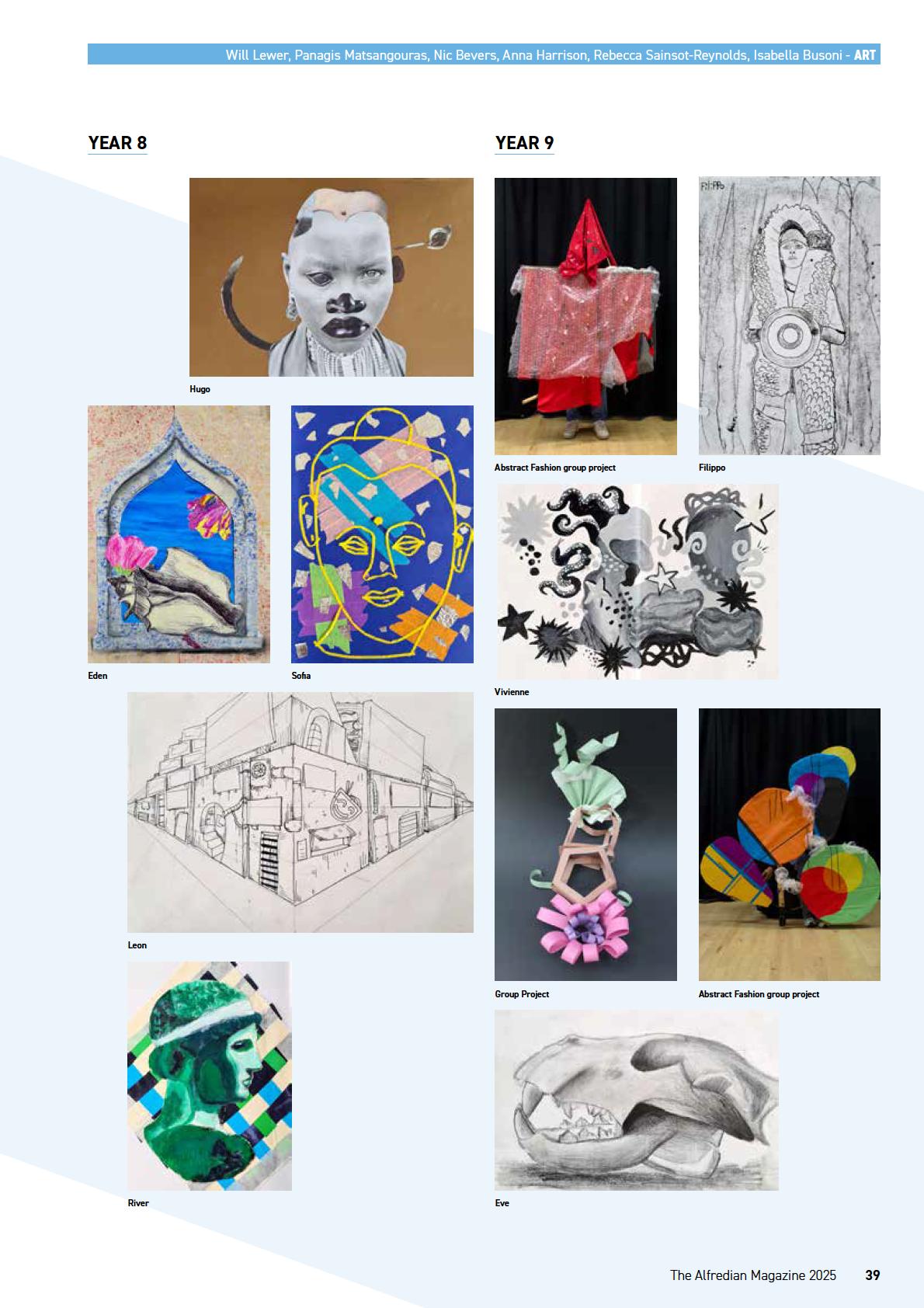









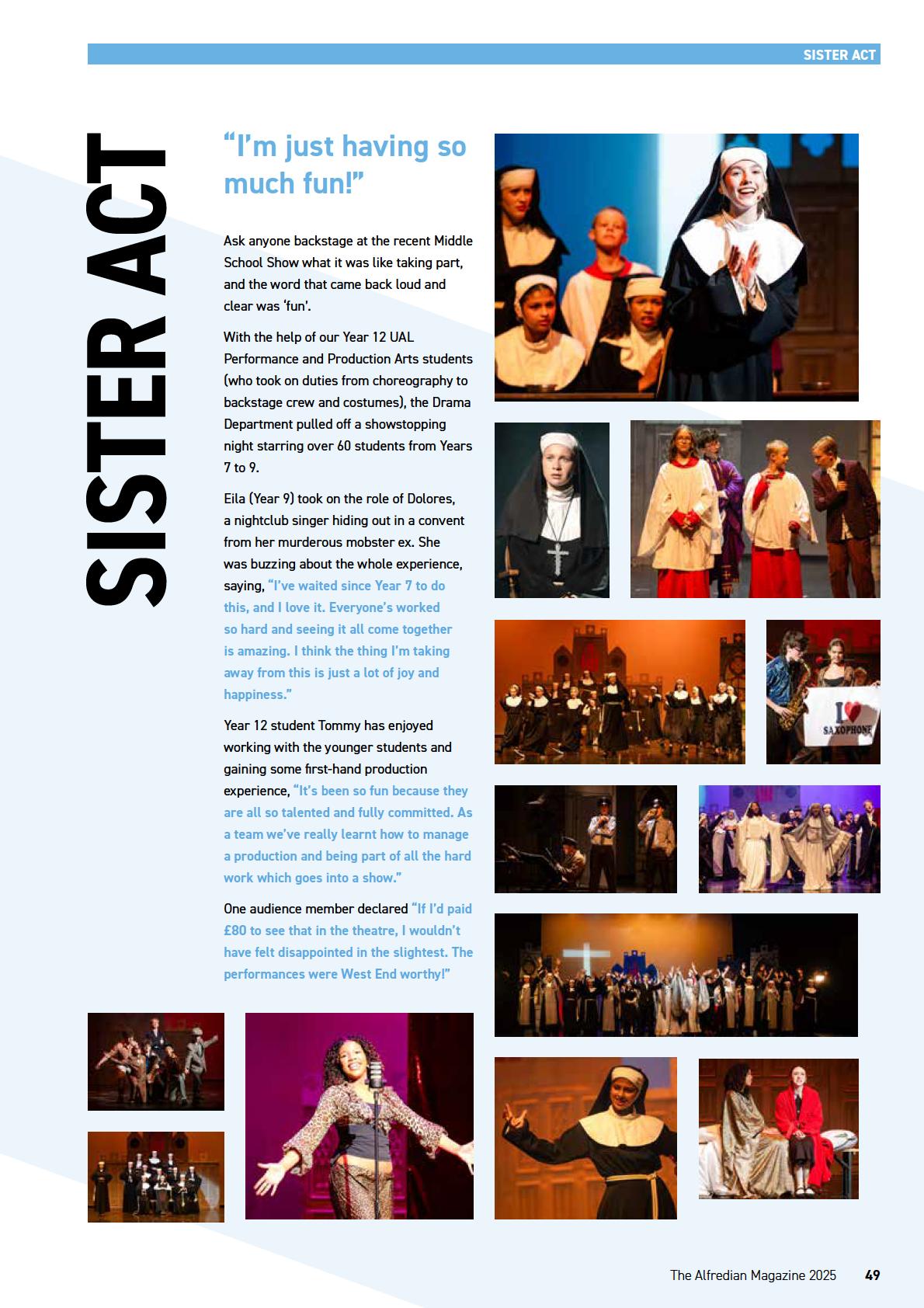


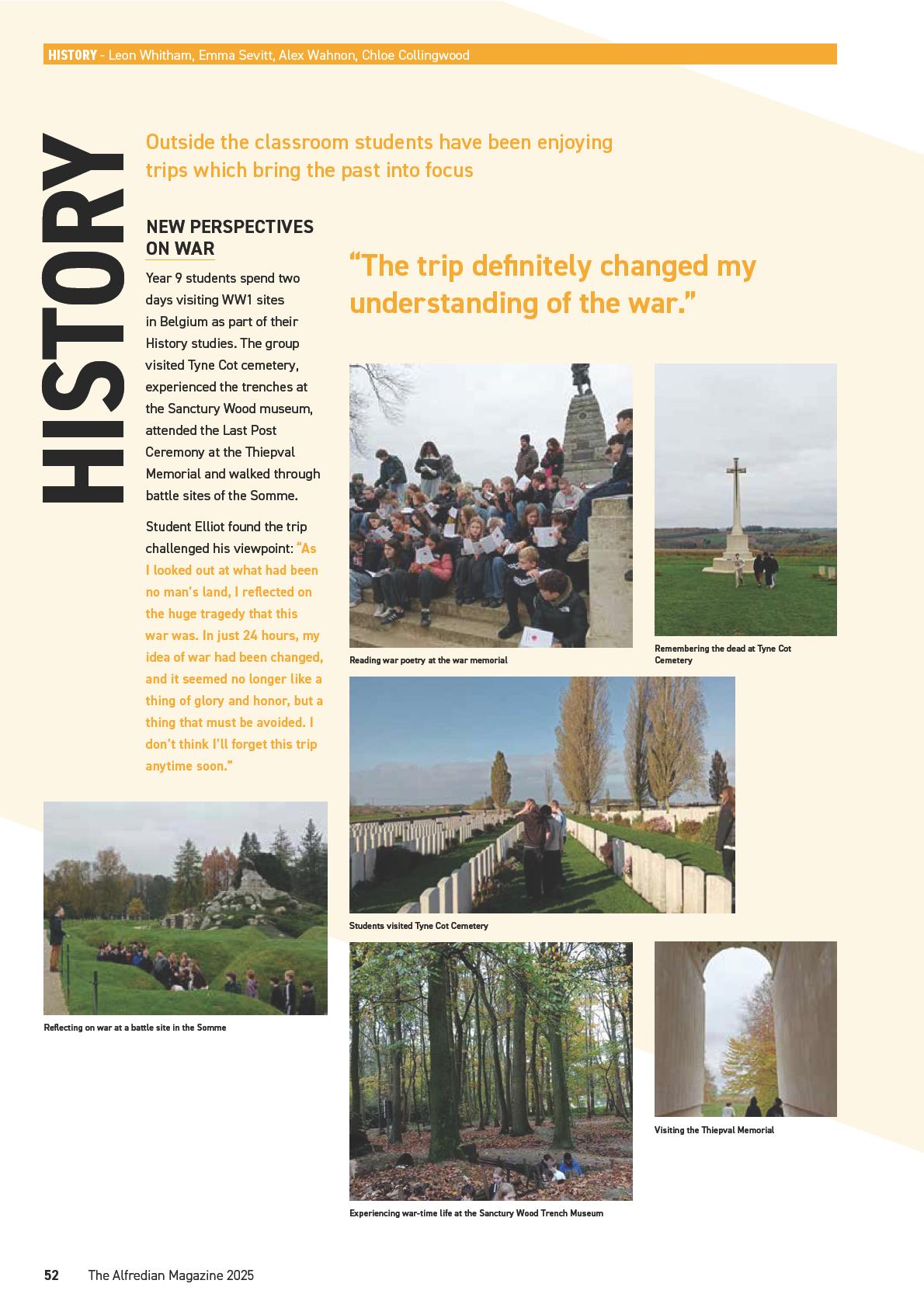
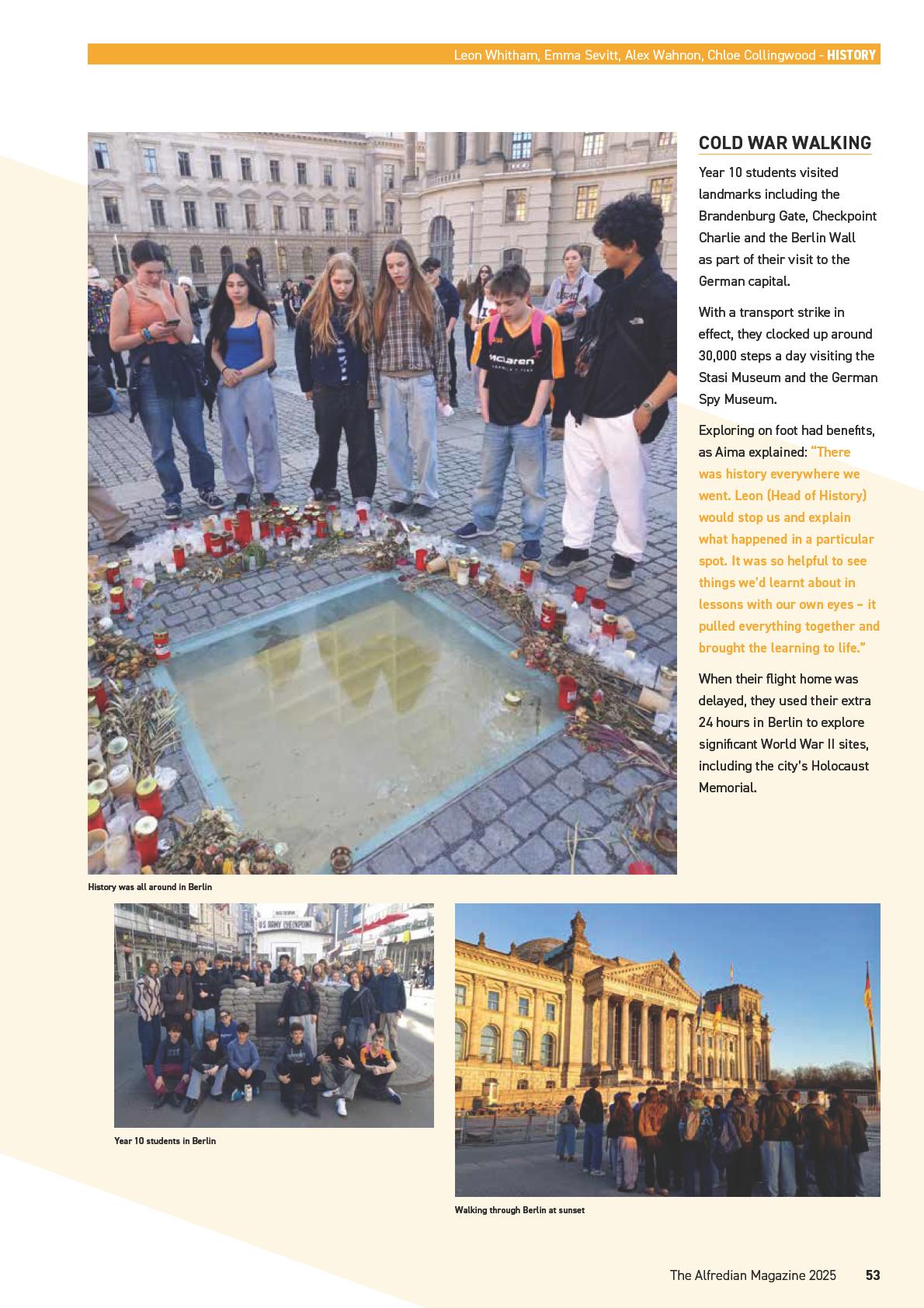
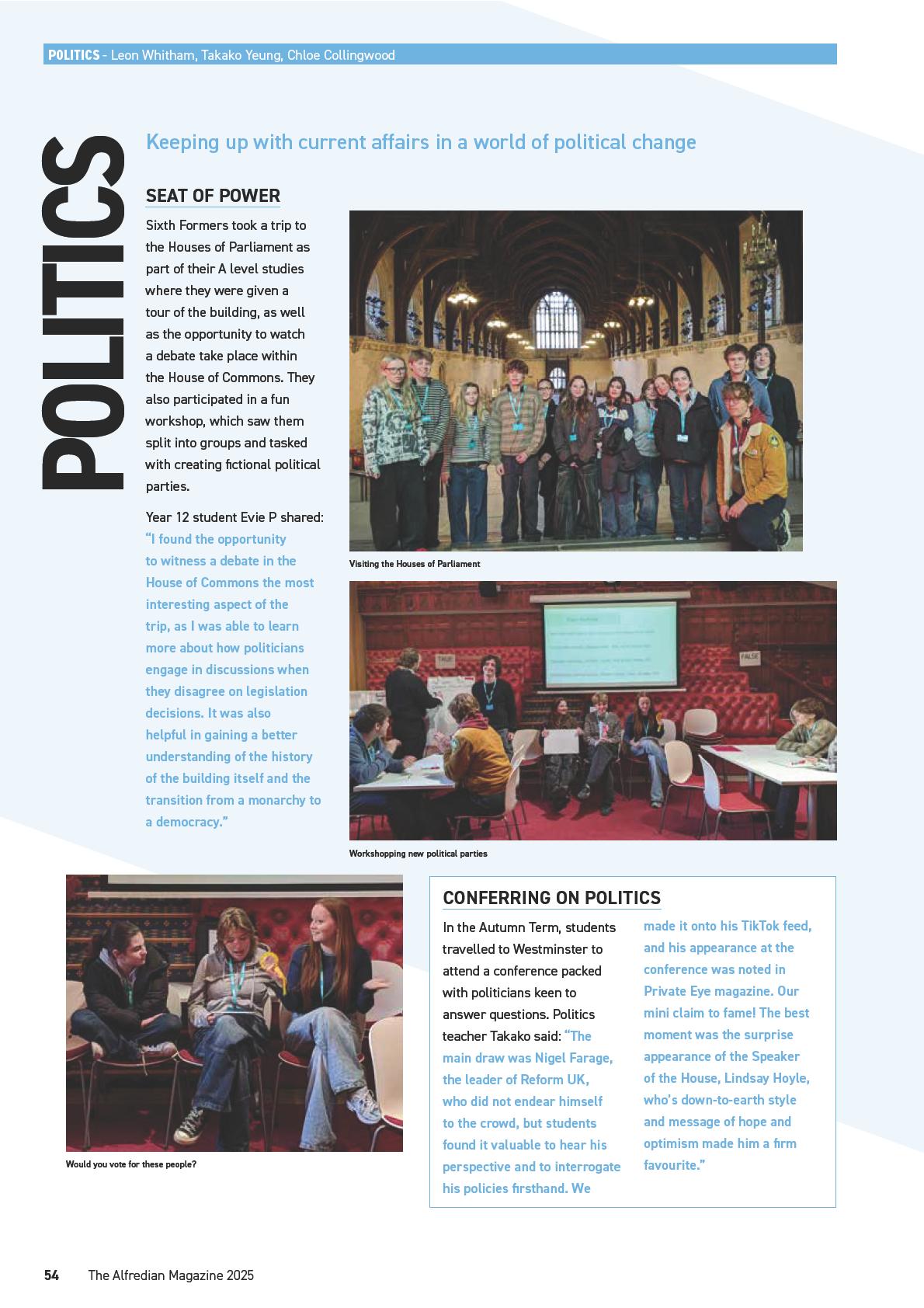



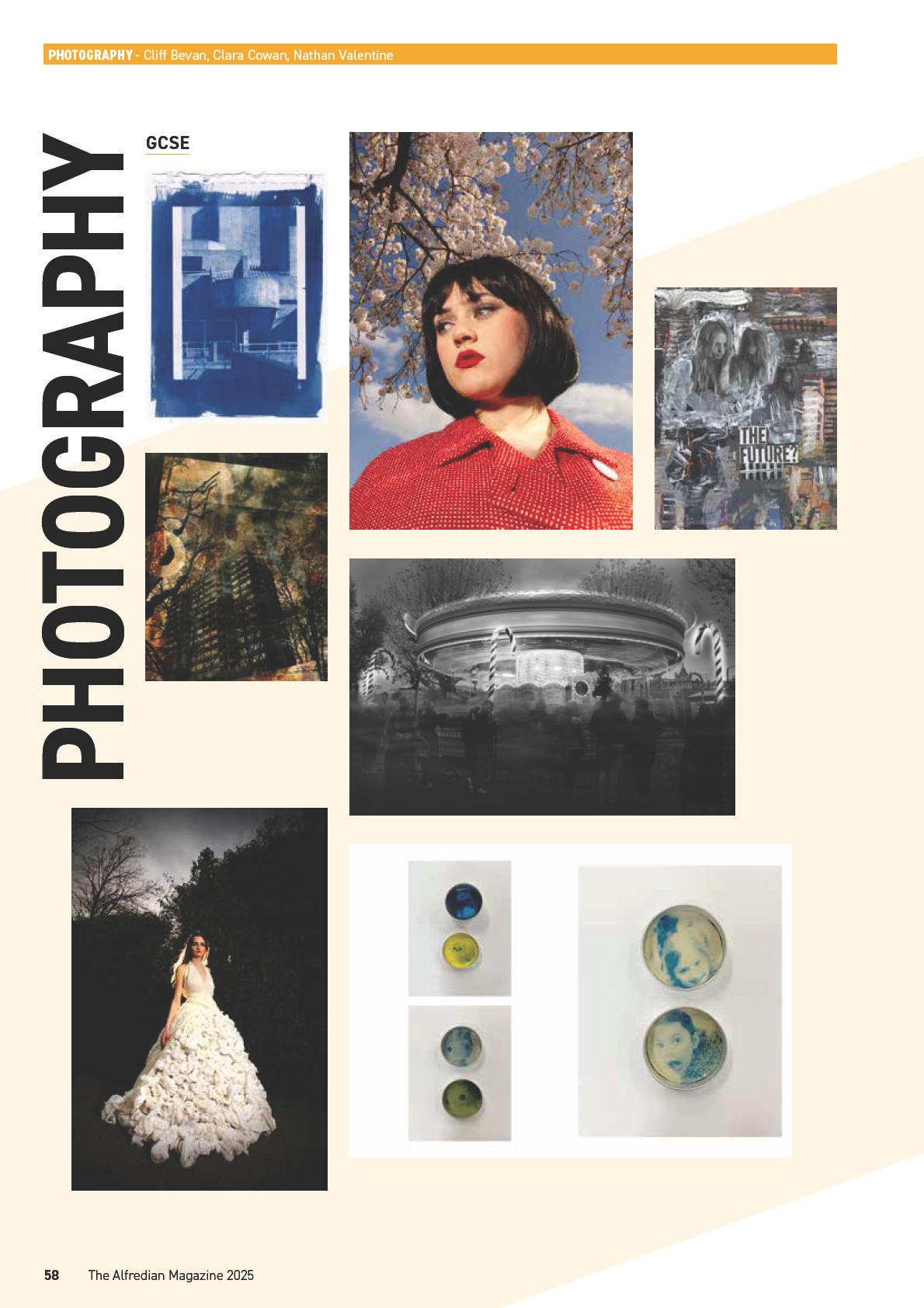



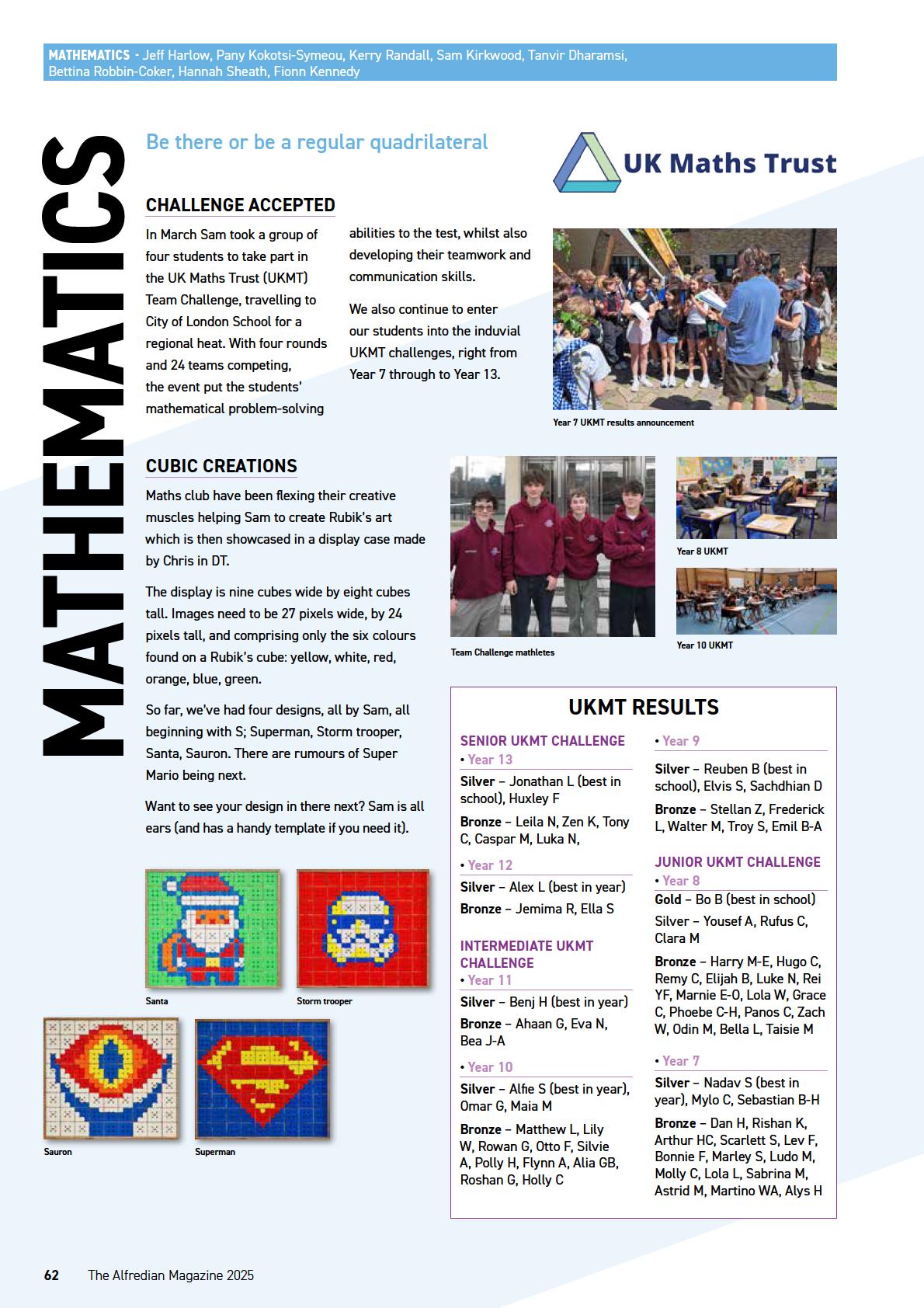

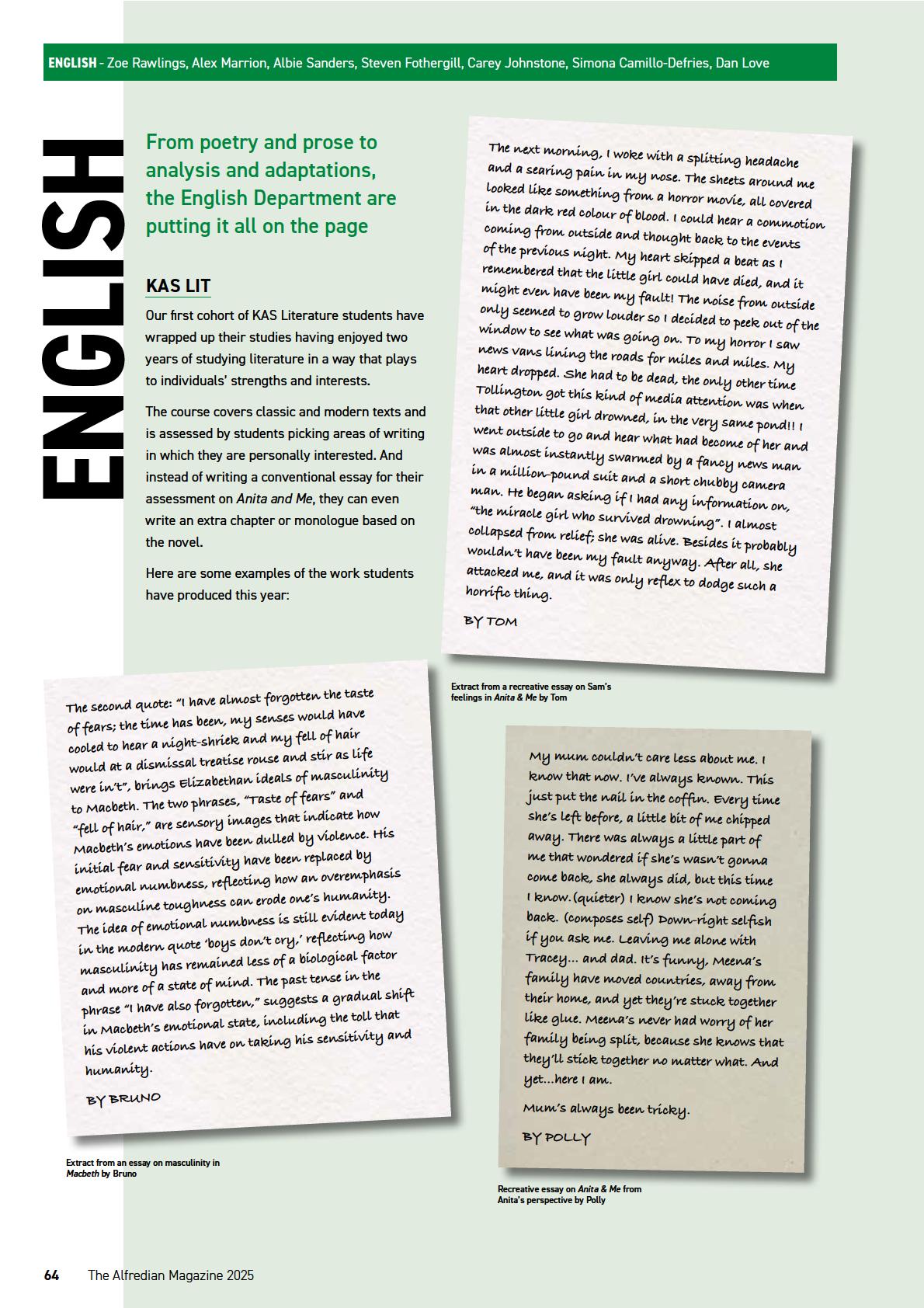

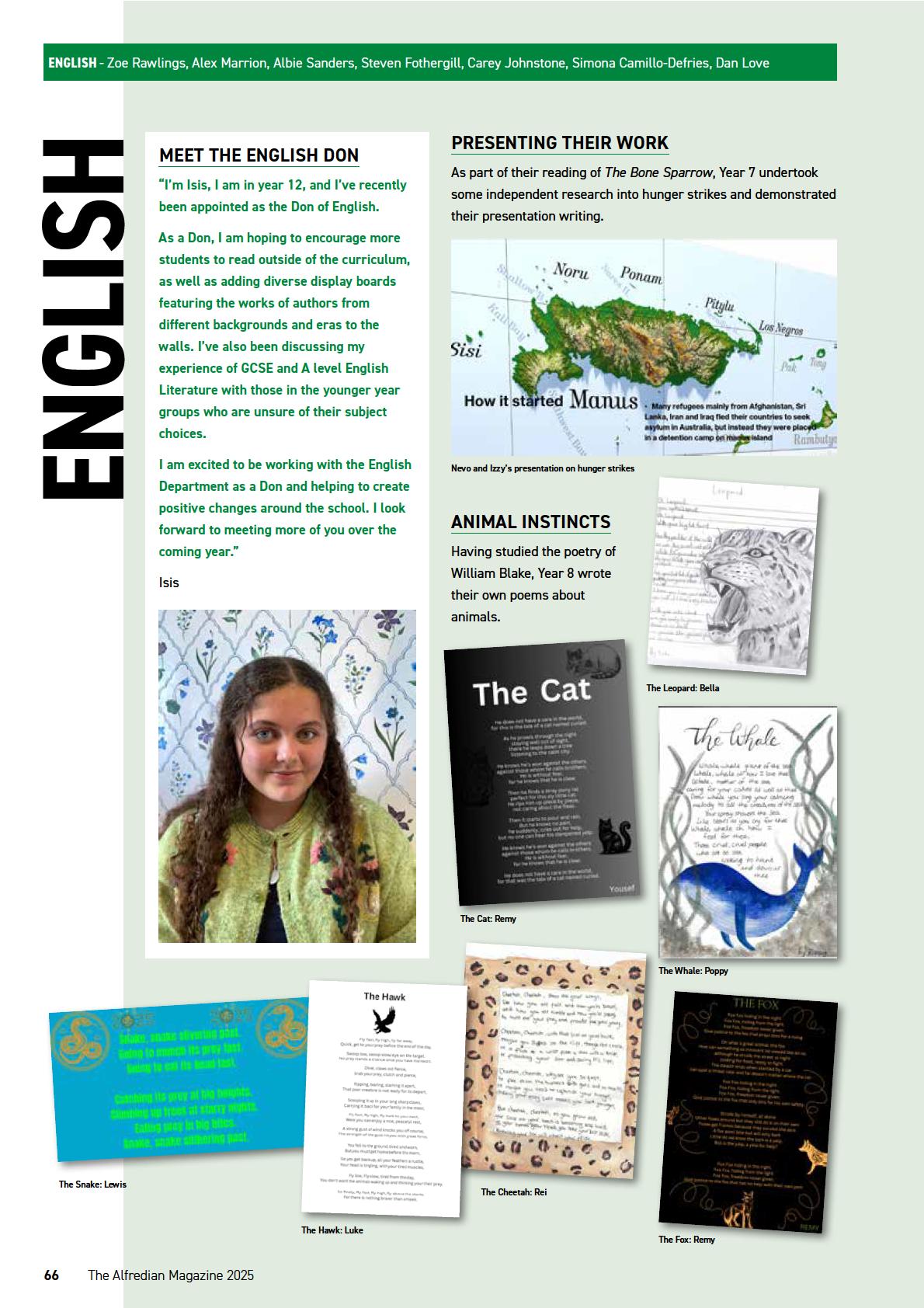

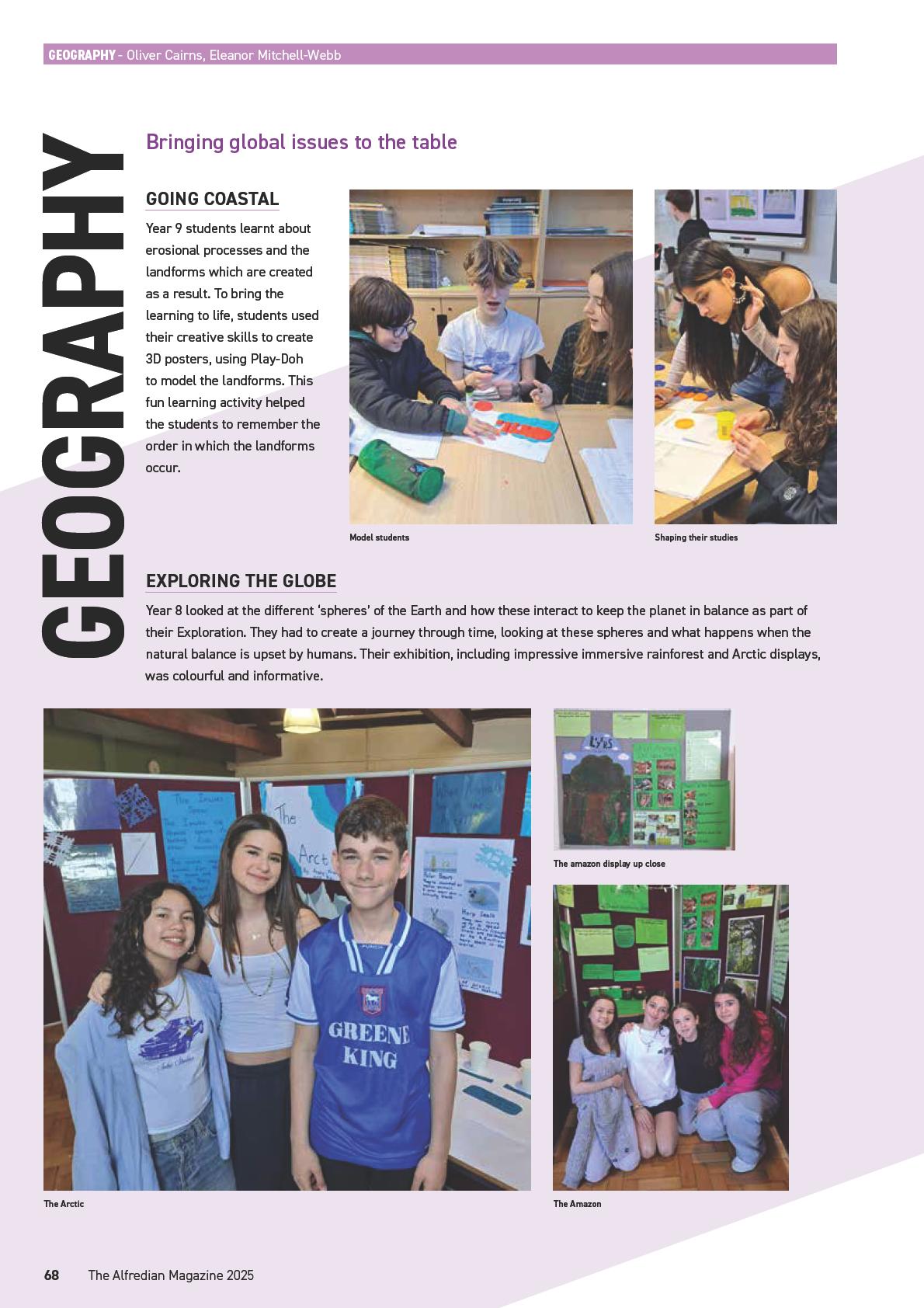



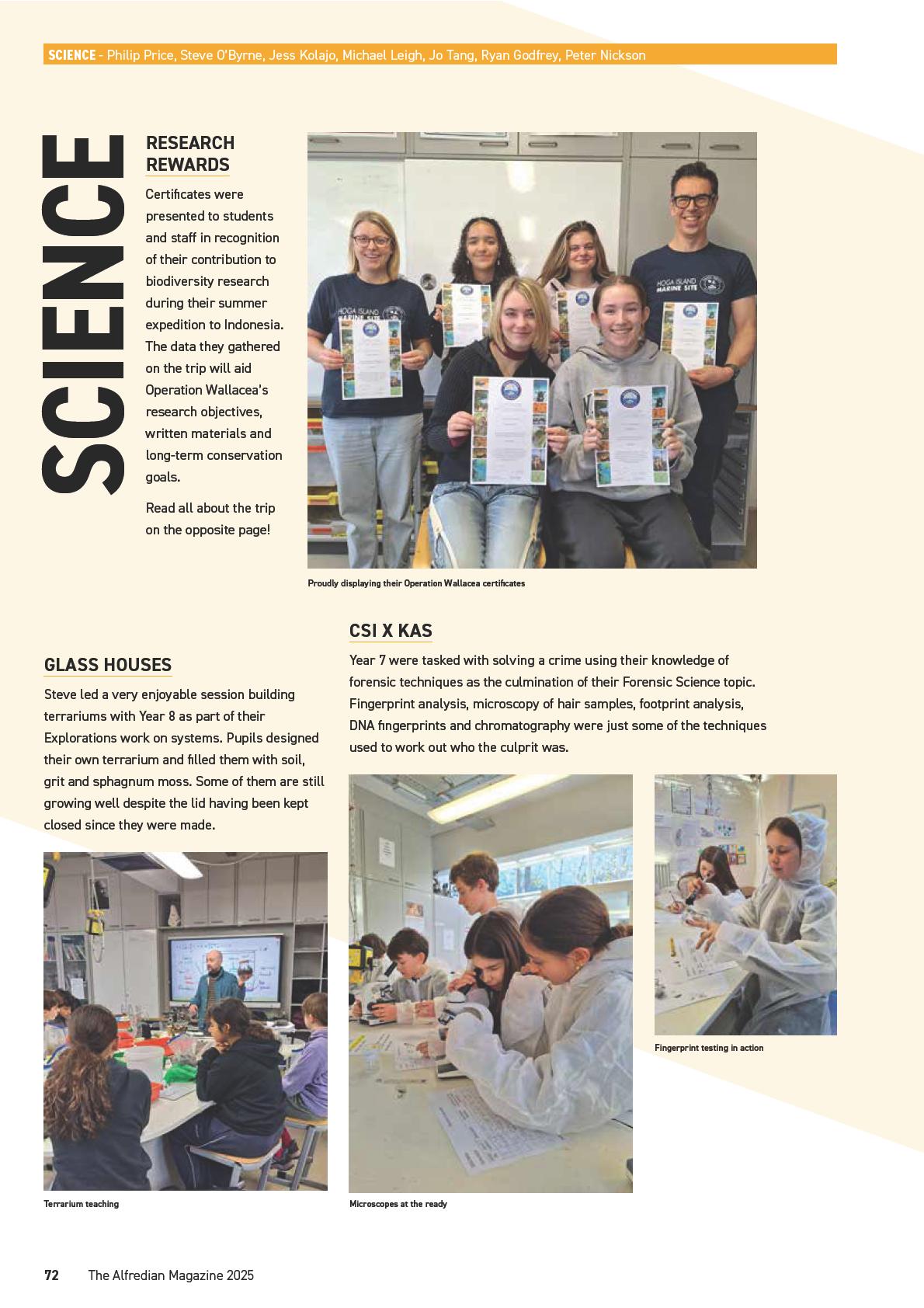



Designing and drawing, creating and crafting, making ideas come to life in our wonderful workshops
Students had a great time building birdhouses and learned essential woodwork skills such as measuring, sawing, drilling, laser cutting, and final assembly. It was a hands-on experience that helped them develop both creative and technical skills!




The Asthma Project which our Year 8 students took on showcased some truly impressive prototypes. The students thoughtfully considered how to support infant asthma medication delivery through design, approaching the challenge with creativity and innovation.

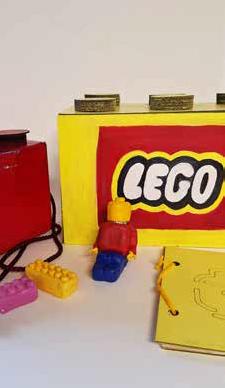


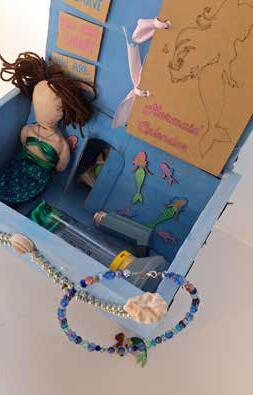

The Year 12 and 13 trip to Dutch Design Week in Eindhoven was an amazing opportunity to step outside the workshop and into the wider world of design. As one of the biggest design events in Europe, DDW features the work of over 2,600 designers across multiple venues, giving students a chance to experience the latest trends and innovations in design. It was a fantastic way for them to get inspired and see firsthand how design is pushing boundaries globally.

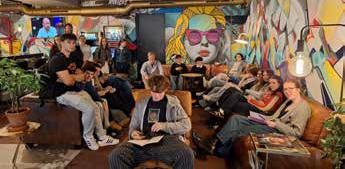






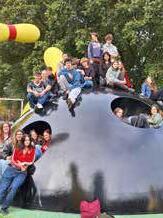

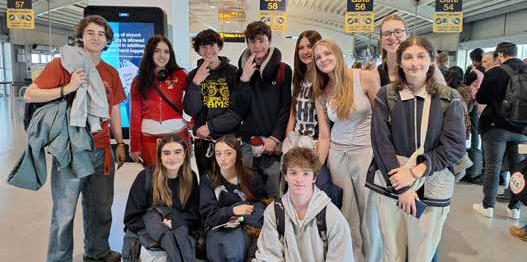
We’re really proud of our GCSE designers! They’ve written their own briefs and shown great creativity, independence and resilience over the last two years. Their final pieces speak for themselves — thoughtful, original and genuinely impressive.








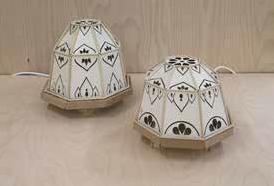

The Sixth Formers studying 3D Design have truly gone above and beyond. They’ve worked together, supported each other, and pushed one another to create some amazing final pieces. They should be incredibly proud of all they’ve achieved!




